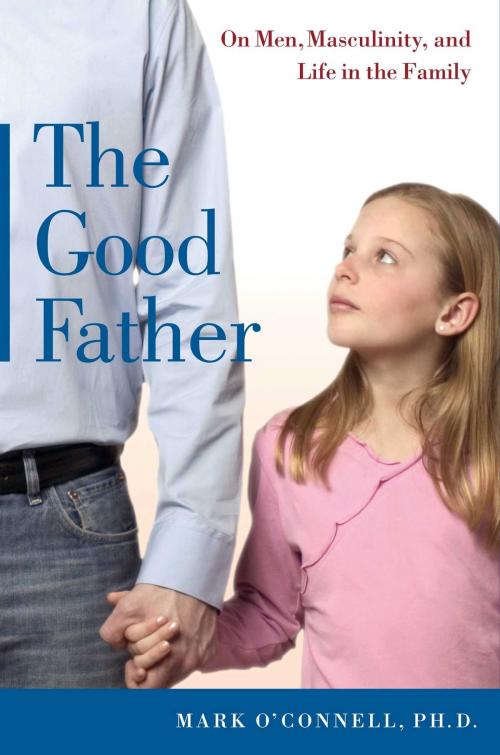The Good Father
On Men, Masculinity, and Life in the Family
Nonfiction, Family & Relationships, Activities, Health & Well Being, Self Help| Author: | Mark O'Connell, Ph.D. | ISBN: | 9781439104187 |
| Publisher: | Scribner | Publication: | March 31, 2015 |
| Imprint: | Scribner | Language: | English |
| Author: | Mark O'Connell, Ph.D. |
| ISBN: | 9781439104187 |
| Publisher: | Scribner |
| Publication: | March 31, 2015 |
| Imprint: | Scribner |
| Language: | English |
Fathering is one of the most basic and profound human activities. Yet in addition to its many joys, fatherhood is often freighted with longing, sadness, anger, and misunderstanding. Most of us, men and women alike, are acutely aware of how difficult it is to father well, year after year, until, and even after, children are grown.
At the same time, the essential relationships between men and women and their children are under stress these days as never before, subject to the pressures of work, money, divorce, remarriage, and adoption. As a result, many fathers struggle with deep uncertainties about their parenting abilities. Meanwhile, society's definitions of masculinity appear ever more fluid, negotiable, and unreachable in today's media-saturated culture, which endlessly exposes men (and women) to a stream of images celebrating violence, war, hypermasculinity, athletic ability, corporate competition, alternative life-styles, "metrosexuality," and triumphant materialism.
Who, men might rightfully ask, are we expected to be? Do various pop-cultural definitions of masculinity really reflect what it is to be a man? What in men's true natures helps them be good fathers? Can aggression be useful? What masculine traits do fathers need to guard -- and guard against? How do men love their children, and how is being a father very different from and no less essential than being a mother? And how can women understand how men experience fatherhood?
This is the rich social reality that Dr. Mark O'Connell, a psychotherapist and father of three, addresses in his provocative, brilliant, and wise book. Drawing on both his professional case histories and personal experience, O'Connell describes the internal conflicts that many men feel about the difficulties of being a father but which they are often unable to discuss easily. Such issues include questions about authority, discipline, intimacy, physical contact, and sexuality.
In ways that are distinctly masculine, O'Connell says, fathers communicate standards, insist on respect for others, instigate necessary confrontations, and even engage in the kind of rough-and-tumble play that enlivens the developing neural structures in a child's brain. O'Connell contends that fathers play a crucial role in conveying the rules, expectations, and inevitabilities of life, and he describes how men can help their families by understanding and embracing their own masculinity. Men are different from women and must be allowed to parent differently as well.
The Good Father, however, is not just a very readable book for fathers struggling to find their best selves in relation to their spouses and children. Women will want to read The Good Father as well. All men and women have complex and important relationships with their fathers, whether or not those men were good fathers. Dr. O'Connell reveals how men and women alike bring these relationships to their parenting, and how we so often need to untangle these generational knots.
Filled with reassuring common sense, The Good Father opens a path toward happier, more satisfying relationships for the entire family while helping men become the good fathers they deeply want to be.
Fathering is one of the most basic and profound human activities. Yet in addition to its many joys, fatherhood is often freighted with longing, sadness, anger, and misunderstanding. Most of us, men and women alike, are acutely aware of how difficult it is to father well, year after year, until, and even after, children are grown.
At the same time, the essential relationships between men and women and their children are under stress these days as never before, subject to the pressures of work, money, divorce, remarriage, and adoption. As a result, many fathers struggle with deep uncertainties about their parenting abilities. Meanwhile, society's definitions of masculinity appear ever more fluid, negotiable, and unreachable in today's media-saturated culture, which endlessly exposes men (and women) to a stream of images celebrating violence, war, hypermasculinity, athletic ability, corporate competition, alternative life-styles, "metrosexuality," and triumphant materialism.
Who, men might rightfully ask, are we expected to be? Do various pop-cultural definitions of masculinity really reflect what it is to be a man? What in men's true natures helps them be good fathers? Can aggression be useful? What masculine traits do fathers need to guard -- and guard against? How do men love their children, and how is being a father very different from and no less essential than being a mother? And how can women understand how men experience fatherhood?
This is the rich social reality that Dr. Mark O'Connell, a psychotherapist and father of three, addresses in his provocative, brilliant, and wise book. Drawing on both his professional case histories and personal experience, O'Connell describes the internal conflicts that many men feel about the difficulties of being a father but which they are often unable to discuss easily. Such issues include questions about authority, discipline, intimacy, physical contact, and sexuality.
In ways that are distinctly masculine, O'Connell says, fathers communicate standards, insist on respect for others, instigate necessary confrontations, and even engage in the kind of rough-and-tumble play that enlivens the developing neural structures in a child's brain. O'Connell contends that fathers play a crucial role in conveying the rules, expectations, and inevitabilities of life, and he describes how men can help their families by understanding and embracing their own masculinity. Men are different from women and must be allowed to parent differently as well.
The Good Father, however, is not just a very readable book for fathers struggling to find their best selves in relation to their spouses and children. Women will want to read The Good Father as well. All men and women have complex and important relationships with their fathers, whether or not those men were good fathers. Dr. O'Connell reveals how men and women alike bring these relationships to their parenting, and how we so often need to untangle these generational knots.
Filled with reassuring common sense, The Good Father opens a path toward happier, more satisfying relationships for the entire family while helping men become the good fathers they deeply want to be.















